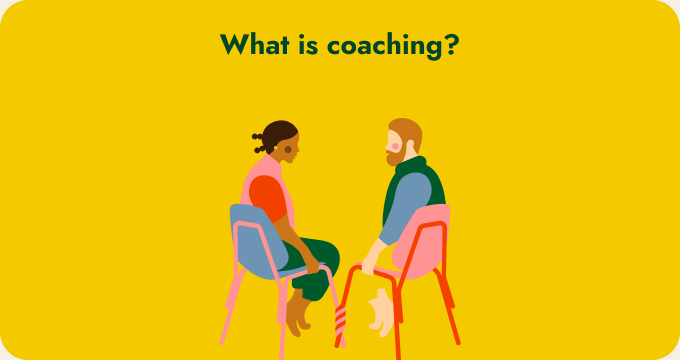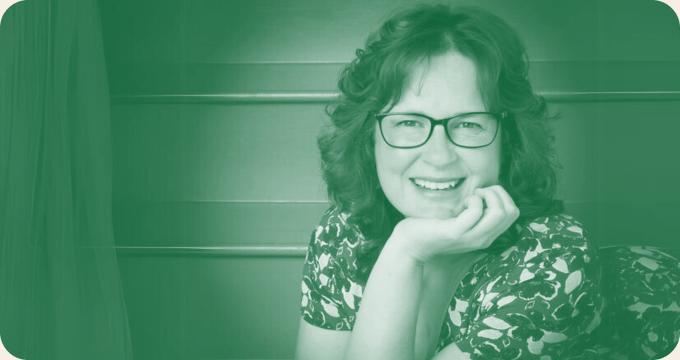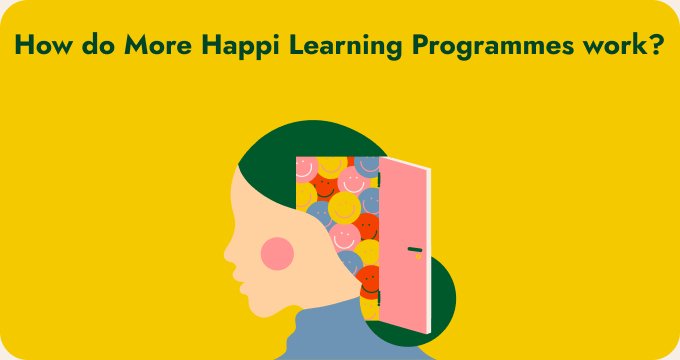What is coaching? You might not think that Oprah, Leonardo Dicaprio and Metallica have very much in common but the answer is they do. They’ve all benefited from working with professional coaches, and with More Happi, you can too. So what exactly is coaching, and how can it help you progress in your personal, professional, and well-being aspects of life? Let’s find out.
What are the psychological benefits of coaching?
Coaching creates a unique experience for everyone, but the benefits have been proven to improve:
🧠 Neuroplasticity ⏲️ Productivity ❓Problem-solving
😀 Wellbeing 🫂 Relationships 🔈 Communication 🤸 Confidence
✅ Habit formation 🌿 Growth ⚖️ Work/Life balance
👁️ Clarity 👍 Decision-making 🔥 Overwhelm
🚀 Performance ⭐ Goal-alignment 🌈 Purpose
And it doesn’t end there… Thanks to data gained by the International Coaching Federation (ICF) and McKinsey we can now see the evidence in black and white.

What’s more, organisations that provide coaching are 2x better at retaining talent.
Aside from this impressive wish list of outcomes, coaching is an incredibly productive, bespoke approach to problem-solving, for both teams and individuals. Each coaching conversation is 100% confidential and takes place with a trained professional. More Happi members consistently report a surge in focus, clarity and self-awareness in testimonials, amongst other positive outcomes.
Each coaching session is as unique as you are, so there are no boundaries when it comes to the benefits of each coaching session.
Unlike other coaching providers, More Happi offers coaching in all areas of our life; relationships, purpose, self and parenting, as well as work. Why? Because there’s more to us than our jobs (although it may not always feel that way) and our personal life is just as important as the professional ‘us’ we showcase at work.
What makes coaching so productive?
It focuses on closing the gap between where you are now and where you want to be in any area of your life. It’s a tool that helps you achieve the things you want to be, do, and have, leaving you happier, more energised and clear about what to do next.

What can I expect from my coach?
More Happi coaches are trained to actively listen, ask thought-provoking questions, challenge limiting beliefs, uncover your core values and strengths, and foster reflection. Think of them as a trained facilitator of your learning, growth and development.
They’ll share valuable tools and frameworks, promoting your creativity and potential. Importantly, your coach won’t judge, assume, dictate, or offer advice. They’re not here to tell you what to do, but together, you’ll confidentially explore your potential, ultimately unlocking your own answers and solutions.
Here’s a breakdown of what your coach will and won’t do:
✅Your coach will:
- Listen actively (to what is and isn’t being said)
- Ask questions
- Challenge beliefs and thought patterns that might be holding you back
- Help you uncover your core values
- Help you uncover and play to your strengths
- Encourage reflection
- Share tools and frameworks (where relevant)
- Help unlock more of your creativity, imagination and potential
- Help you get to the answers yourself
- Keep your session confidential
❌ Your coach won’t:
- Judge you or anything you say
- Make assumptions
- Tell you what to do
- Come up with the answers for you
- Offer advice or guidance
- Share anything you’ve discussed externally. Coaching sessions are 100% confidential
Having a coach is really like having your own personal growth partner and champion, helping you tackle problems and turn ideas into reality so that you can achieve your goals in any life area. It’s an empowering experience designed to move you forwards towards your desired outcomes.
Is coaching confidential?
One of the defining features of coaching is the confidentiality it offers. No one within your organisation (or at More Happi), or wherever you seek coaching, will know what you discuss with your coach. It’s a safe space to talk about your challenges, ideas, and goals.
Is Coaching like Mentoring or Therapy?
Coaching, mentoring and therapy are all powerful interventions, but their approach differs dramatically. The confusion comes from the fact that they are all essentially a conversation between you and a trained professional, with you and your challenge or situation at the very center. But the similarities end there. Although they can feel quite similar in style, their approaches differ considerably. Let’s take a closer look.

What’s mentoring?
Imagine you’re climbing a mountain, and you have an experienced mountaineer guiding you through the challenging terrains. Mentoring is a similar process, where a seasoned expert shares their knowledge and experience to guide, inspire, and develop.
- Mentors are subject matter experts.
- They’ll offer advice, guidance and solutions based on their own experiences (a directive approach).
- They may also ask you questions to help you see things differently (a non-directive approach).
- A mentor’s advice may be biased, subjective and influenced by the mentor’s personal views.
How is coaching different?
Coaching is like having a non-judgmental thinking partner by your side. They’ll empower you to discover and unleash your untapped potential, enabling you to set and achieve specific goals.
- Coaching is non-directive in its approach, meaning you won’t receive personal advice, guidance or be told what to do.
- Coaching can focus on personal and professional growth and well-being.
- You’ll get to the clarity and solutions you seek, but your coach’s job is to help you discover them in your own way. They will help you uncover your blind spots and raise your awareness so that you feel better equipped to achieve goals and overcome challenges.
- Coaches are facilitators of learning, using questions, tools, and frameworks to raise your awareness.
Ok. What about therapy?
Life’s journey is full of ups and downs, and sometimes we face emotional or psychological challenges that hinder our progress. Therapy provides a safe and supportive environment to address and heal from past traumas, understand deep-rooted emotions, and cultivate self-awareness.
- It’s traditionally focused on the emotional past, diagnosis, analysis, and resolution.
- Therapy has a focus on coping and assumes the individual may be incapacitated in some way.
- Results aren’t always immediate: Progress may take time, and instant solutions may not be feasible.
- Therapy may not address professional goals. Therapy primarily focuses on emotional well-being, not career development.
In conclusion, coaching is a transformative tool that can help you bridge the gap between your current state and where you want to be, while also enhancing various aspects of your life.
Ready to get started? Find out more and sign up here today.





